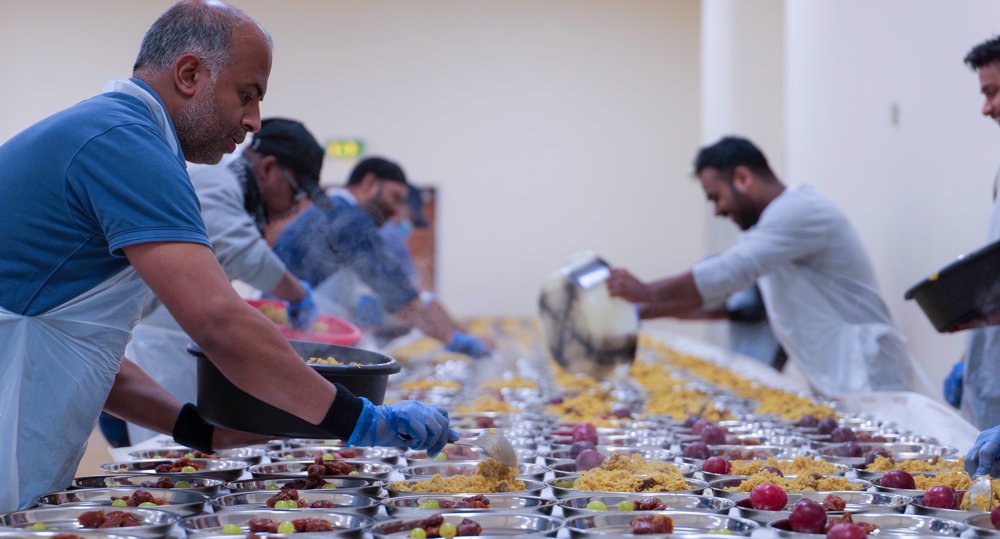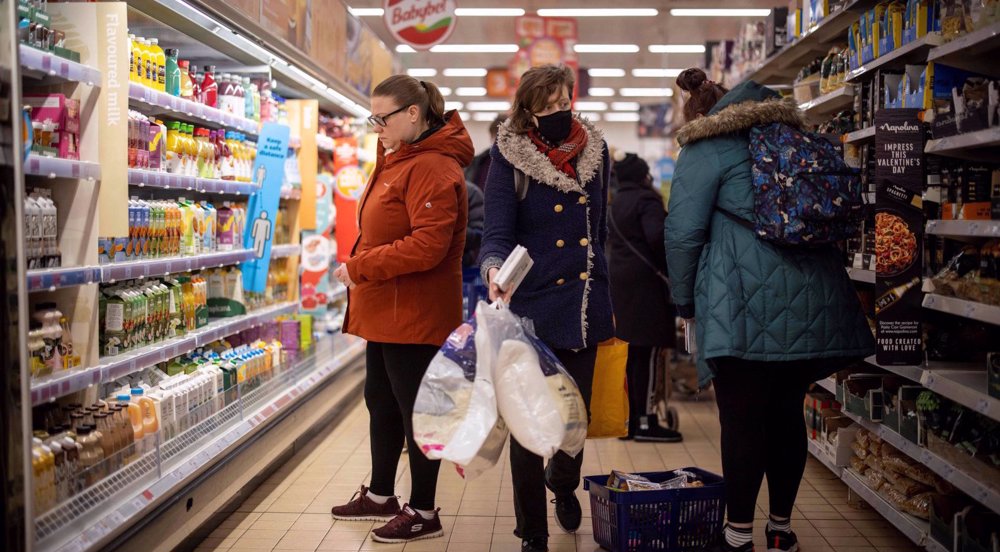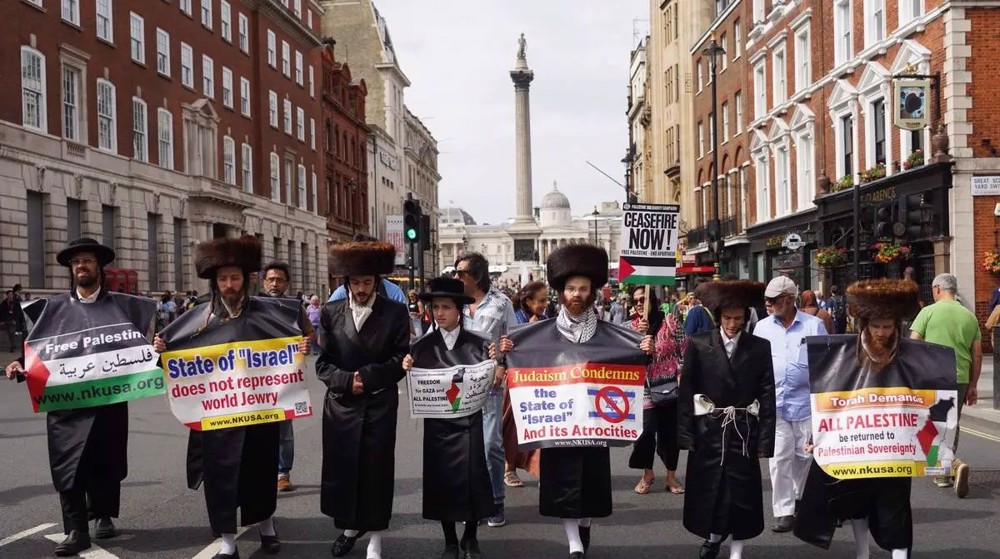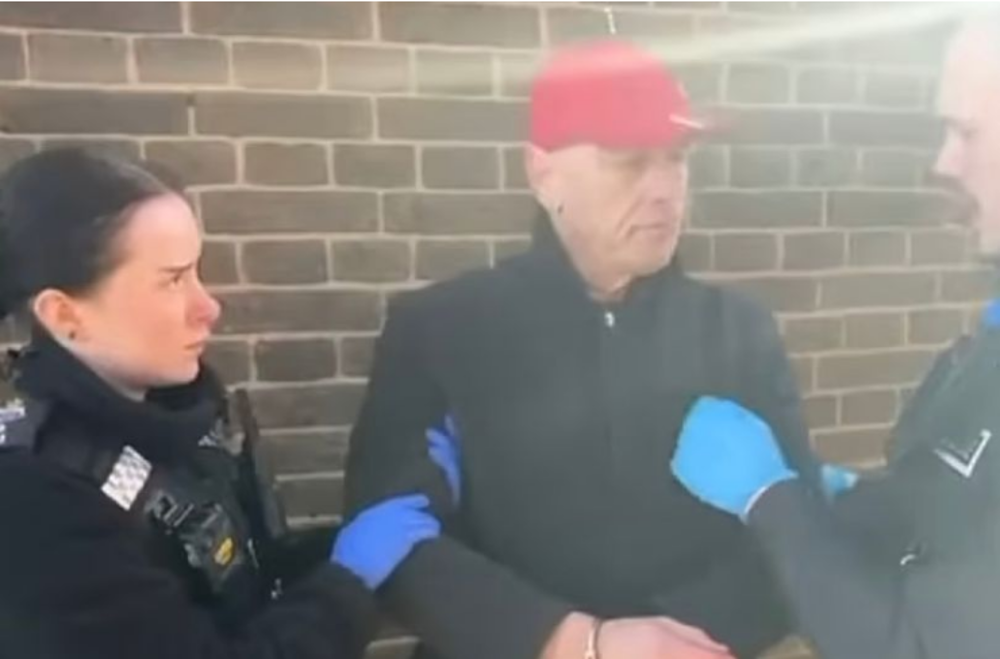UK Muslim charities hand out food as economic crisis bites: Report
British Muslim charities are handing out food during the blessed fasting month of Ramadan as more and more people are turning to food banks for assistance as a result of the cost of living issue and the country’s high inflation.
Thousands of people are lining up outside the East London Mosque in Tower Hamlets each evening to collect food parcels, the Middle East Eye website reported Sunday.
The mosque management said it has had to double the number of meals it provides for the daily iftar meal Muslims eat to break their fast.
"Lines of women, many with empty prams, are stood outside mosque to collect food. Some wear masks. Others wear scarves to cover their faces so no one can recognize them. But these women are not here to pick up children from the creche. They are here to collect food," the report said
Since the Covid-19 pandemic, the mosque in Tower Hamlets Tower Hamlets has operated a food bank from inside its vast complex. The project was initially set up in 2020 to help people who lost their jobs due to the lockdown, as well as deliver food to the elderly who were self-isolating for health reasons.
But the UK's rising spiraling food and energy costs have pushed demand for the food bank's services to unprecedented levels, leaving volunteers struggling to meet the needs of a community suffering the highest levels of deprivation in the British capital.
Sufia Alam, who manages projects at the Maryam Center, said that the number of people using the food bank and attending free iftar meals provided by the mosque was at an all-time high.
"Having worked in Tower Hamlets for the thirty years, I have never seen anything like this," she said.
“I thought poverty like this only existed in the north where I am from, but in the past few weeks alone, we've been giving hundreds of food packs to people on benefits, in debt or struggling to pay the bills, and refugees housed in temporary accommodation."
Alam said that nearly a thousand people came to the center every day to break their fast.
"On the first day of Ramadan, we ran out of food, with my volunteers running into the nearby Tesco to buy sandwiches for people so they could break their fast.”
Siara Begum has been using the food bank at the East London Mosque for the last four to five months after her living costs tripled due to increases in her utility bills.
She explained how the cost of living had made life difficult for her and her two young children.
“Never in my life did me or my friends imagine using a food bank,” said Begum. “Before, we could handle the costs, but when our bills went through the roof, I had to choose between heating or eating.”
For Muslim communities, the cost of living crisis has been particularly challenging. Data from the Office for National Statistics (ONS) showed that more than two-thirds of England and Wales' 2.6 million Muslim population live in areas with high unemployment.
Food prices in Britain are rising at the fastest rate in more than 40 years. In January, inflation for food and non-alcoholic beverages stood at 16.8 percent. According to the ONS, electricity prices in the UK rose by 66.7 percent and gas prices by 129.4 percent.
The problem has been further compounded as the price of essentials, such as rice and cooking oil, has risen by more than 10 percent during the last year. Ramadan staples including chapati flour and chickpeas have increased by nearly 20 percent.
This surge in costs disproportionately affects British Muslims, according to the UK's Agriculture and Horticulture Development Board, with 19 percent of Muslims turning to food banks in the past year, compared with 11 percent of the overall population.
The National Zakat Foundation, a charity, has noted a 90 percent increase in applications to its hardship fund.
Last month, the Independent Food Aid Network (IFAN) research found that food banks were struggling to meet a record demand from people who are in work – including the NHS staff and teachers. More than 80 percent reported supporting a significant number of people for the first time, while many said demand was growing among pensioners and families with babies.
Cost of living increases were given as the biggest problem, followed by inadequate wages and waiting times for initial universal credit payments. Benefit restrictions and deductions were cited by one-third of independent food banks as a motivating factor.
Notably the workers who are going out on strike make up a large portion of those who have turned to food banks as the most extensive public sector strikes in decades have been brought on by a real earnings decline and rising inflation.
The raging cost of living crisis in the UK began in 2021, when prices for many basic necessities began to rise faster than household incomes, causing real incomes to plummet. Apart from soaring inflation, the Covid-19 pandemic and the West's sanctions imposed on Russia over its special military operation in Ukraine are among the major factors driving the crisis.
UK government ministers recently warned that the “severe sanctions” that Western countries slapped on Russia would have a knock-on effect on the cost of living in Britain, adding that citizens should be prepared to take an “economic hit.”
Jan. 15: ‘Axis of Resistance’ operations against Israeli occupation
VIDEO | US fires: Criticism mounts over govt. failure to respond
VIDEO | Fears, hope in Gaza amid intensified ceasefire efforts
VIDEO | Press TV's news headlines
Hamas: Ceasefire agreement result of steadfastness, resistance in Gaza over 15 months
Hamas thanks Iran, Resistance Front following achievement of ceasefire in Gaza
'Capitulation': Israeli officials and media concede Gaza defeat as truce unfolds
'Gaza has won': Social media users react to ceasefire with mix of relief, joy











 This makes it easy to access the Press TV website
This makes it easy to access the Press TV website